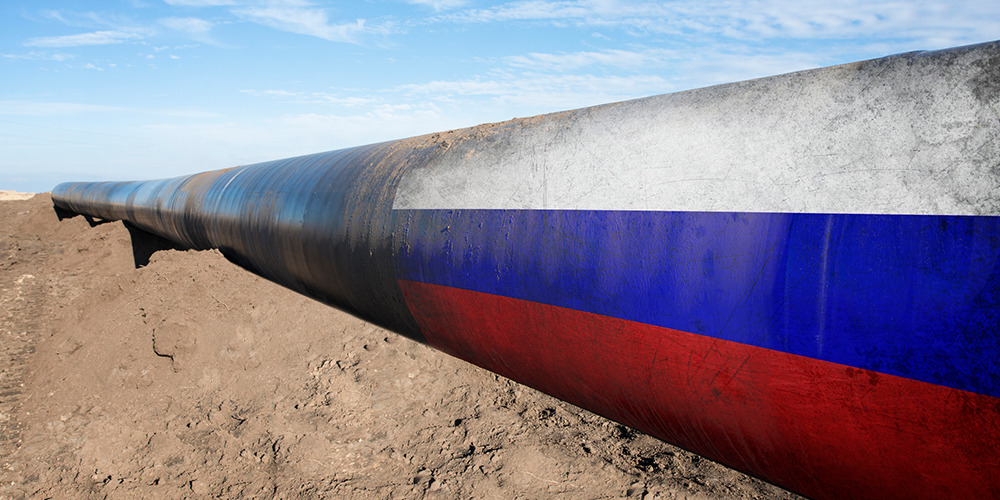The US and Europe disagree over whether $300bn of blocked Russian central bank assets should be seized and transferred to Ukraine. The US is ready to do so. It’s time for Europe to toughen up and join the US.
The first question that arises is whether it’s legal to do so. Bruno Le Maire, minister of the economy, finance and recovery of France, said: ‘We don’t have the legal basis to seize the Russian assets now.’ The European Central Bank has been on the same wavelength.
That stance is highly debatable. The American lawyer Lawrence Tribe and colleagues have written a comprehensive argument on why seizure is consistent with international law. Tribe’s work has been supported and reinforced by Bob Zoellick, Phillip Zelikow and Larry Summers, preeminent US thought leaders and former senior officials at the US Departments of State and Treasury.
Their argument makes clear that countermeasures are appropriate in the face of an unprovoked invasion of another country, rampant war crimes and human rights abuses, as well as wanton disregard for international norms set forth by the United Nations or Geneva Conventions or bodies such as the International Criminal Court.
Legal analysis must be undertaken and policy and precedential concerns naturally arise from this. But one should not use the argument that seizure would violate international law to mask these concerns. Often in public policy, what is termed legal issues are not black-and-white questions but balanced judgments about law and policy.
Moreover, it makes little sense to protect Russian property when Russia itself is flagrantly destroying Ukraine, and at a far larger cost than the sum of Russian central bank reserves. The same is true of respect for Russian sovereign immunity. History is replete with examples of reparations.
Again, strong and credible arguments have been set forth why seizure is legally defensible. There has been little refutation of that analysis.
What could be on European minds?
The ECB and other European officials have raised worries that seizure might undermine the euro’s reserve role or that European firms’ assets in Russia might suffer retaliation. To put it mildly, these arguments are deeply unconvincing.
The US dollar is the world’s dominant reserve asset, comprising around 60% of global gross domestic product. The euro is a distant second at roughly 20%. If anybody should be concerned about the loss of reserve status, it should be the US – but that’s not the case.
Foreign holdings of dollar and euro assets are largely held by countries that have close ties. For example, some three-quarters of US safe assets are held by countries that have alliances with America. The US and Europe hold the world’s deepest and most liquid capital markets. Network and inertial effects reinforce dominance. There are few alternatives to these currencies.
If Europe wishes to burnish the euro’s reserve role, the problem isn’t whether Russian assets are seized. Rather, it is that European nations are unwilling to allow the development of a large market in Eurobonds (as distinct from bunds) and allow capital markets union to make major headway.
Some Europeans fear Russian retaliation against western firms in Moscow, but it’s too late for that. Some suggest that Euroclear fears Russian litigation. Euroclear holds €191bn and earned €4.4bn on those holdings in 2023. As Tim Ash points out, Euroclear could be indemnified.
Other countries are taking notice
If other countries fear receiving the Russian treatment, this concern is overdone. Reserve assets are mainly held by advanced economies and large emerging markets that are hardly warmongering, let alone flagrant human rights abusers. Again, there are few alternatives to US and European capital markets for a store of value.
Further, international order may be enhanced by the salutary message that would be sent by seizure. Perhaps countries will think twice before following Russia’s example.
China undoubtedly has taken notice, especially as tensions ratchet up with Taiwan. But its reserve management so far has been technical and professional.
Given European concerns that seizure could set an adverse precedent causing economic harm, Europe now seems inclined to back transferring earnings on the assets to Ukraine, rather than the corpus. That represents progress. But after assets have already been blocked, let alone now with the earnings likely to be taken, it is preposterous to think that other countries haven’t already received a loud and clear message.
In view of the debates, many proposals are being put forward on how to ‘legally’ seize the corpus. While helpful and constructive (and often coming from colleagues and friends such as Daleep Singh and Lee Buchheit), these have the appearance of dancing around the central decision that is required – either one takes the corpus or not. If there is a difference between legally taking the corpus via guarantees or collateral versus what some might fear would be an illegal outright seizure, it exists perhaps mainly in the mind of a lawyer or financial engineer.
Finally, Europe’s mindset is unhelpful in dealing with Vladimir Putin. The disposition of Russian reserves is strong leverage. European officials should fully use that leverage and make clear that Putin stands to lose his nation’s patrimony over Russia’s barbaric conduct.
Europe should toughen up and back seizing the corpus of Russian central bank reserves.
Mark Sobel is US Chair of OMFIF.

